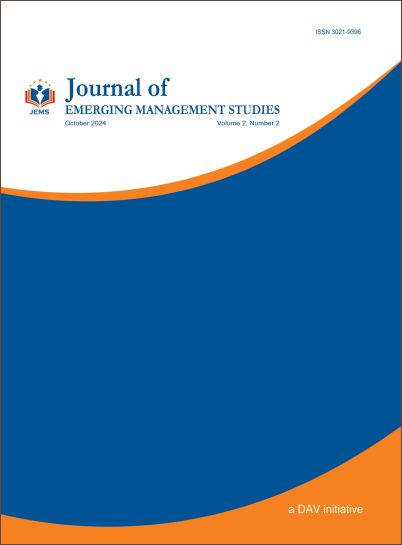Bank Regulations and Earnings Per Share of Commercial Banks in Nepal: An Observation
DOI:
https://doi.org/10.3126/jems.v2i2.74570Keywords:
Bank capital, Base rate, Broad money supply, Earnings per share, Loan loss provision, Weighted average spread rateAbstract
Purpose – The purpose of this research is to examine whether Nepal's commercial banks' earnings per share (EPS) are affected by the following banking regulations: bank capital (BC), loan loss provision (LLP), weighted average spread rate (SR), broad money supply (BMS), and base rate (BR).
Design/methodology/approach – This work uses a descriptive, correlational, and causal-comparative research design. The paper examined data from secondary sources. The information came from the yearly audit report that was gathered from each bank. The research examined the data of 26 (before merger) and 19 commercial banks (after merger) from the fiscal years 2012/13 to 2022/23. Rastriya Banijya Bank, which is completely owned by the government, is not included in the research. The mean, maximum value, minimum value, standard deviation, and coefficient of variation were among the descriptive statistics that were computed. Correlation analysis was used to measure relationship, and multiple regression analysis was used to determine the impact of the associations.
Findings and Conclusion – Based on coefficient of variation, the research has revealed that the highest dispersion was found in LLP, and the least was found in SR. The negative association has been found between EPS and BMS as well as EPS and BR. However, there has been positive association between SR and EPS. Also, there has been insignificant association between EPS with BC and LLP. The result showed that there has been positive impact of BC and SR on EPS but it is negatively influenced by BR, LLP, and BMS.
Implications – The findings offer new insights and directions for NRB regulation on EPS power of banking regulation on return on investment.




